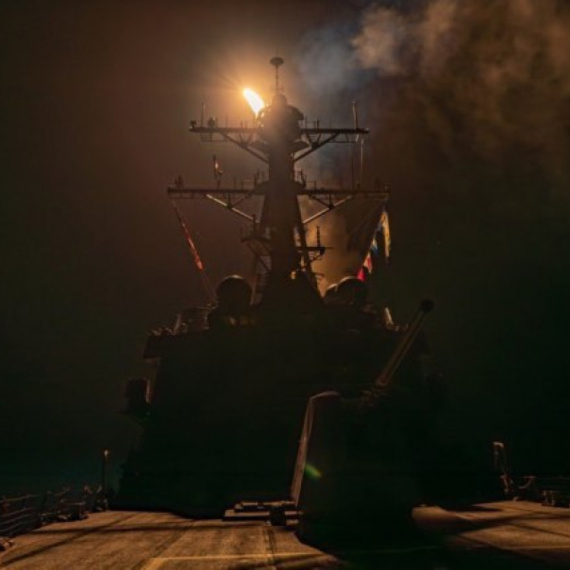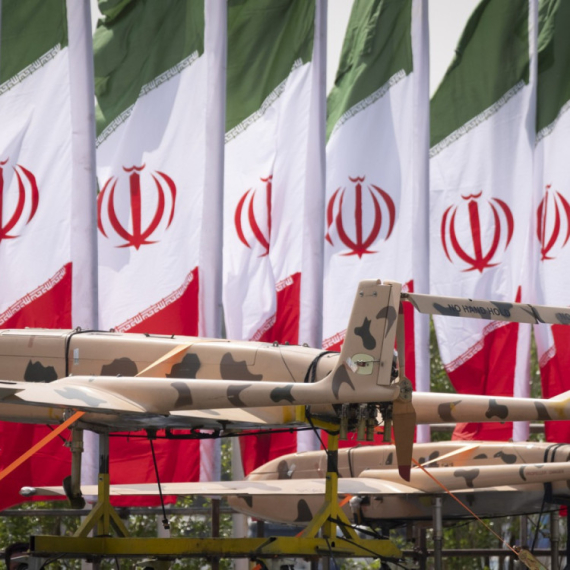"War in Caucasus could slow down recognitions"
The conflict in Georgia could slow down the recognitions of Kosovo, a Slovenian newspaper says.
Tuesday, 12.08.2008.
12:21

The conflict in Georgia could slow down the recognitions of Kosovo, a Slovenian newspaper says. The Ljubljana daily Dnevnik quotes western diplomatic sources in Pristina, and concludes that the war in the Caucasus could have "both positive and negative consequences for Kosovo". "War in Caucasus could slow down recognitions" In February, ethnic Albanians unilaterally declared independence, a move rejected by Belgrade. Now the newspaper says the process of countries recognizing this proclamation, "which is anyway slowed down", could suffer, and marks this as "a negative consequence" of the Georgia-Russia conflict over South Ossetia. "Countries that have been reluctant to recognize Kosovo so far, could use the latest events in Georgia as an excuse to postpone the decision on Kosovo's recognition for a short time, which runs contrary to Kosovo's interests," the newspaper explains. On the other hand, the report continues, "a positive consequence could emerge in the EU – Kosovo – Serbia triangle", where Brussels and Washington "were prepared to allow Belgrade's flirting with Moscow in their common policy of opposing Kosovo's independence". But now, the Slovenian daily says, "the degree of tolerance for the good relations between Moscow and Belgrade will likely be lower, because with the current Russian policy toward its neighbors Serbia must expect greater pressure from the West on the Kosovo issue". "New international law turns on creators" Across the Slovenian border in Austria, the media are also analyzing the roots and meaning of the current crisis in the Caucasus and the one in the Balkans. "The new international law that the West established in connection with Kosovo has now turned against its authors and their interests," the Vienna daily Die Presse said on Tuesday. "When NATO aircraft in 1999 wanted to end the Serbian massacre in Kosovo, it appeared that the international community was facing a new era. At that time, there was talk about the right to a humanitarian intervention and an obligation to protect." "The warning voices remained in the minority. Just a couple of years later, a sobering up took place, and concern has been predominant for the past couple of months. The case of Kosovo has become a nightmare. The new international law that the West wanted to establish in that regard has now turned on its creators and their interests," Die Presse said. "Russia, for many years the political loser in the Yugoslav conflict, is now skillfully playing the card of Kosovo in the conflict with Georgia. What was valid for Kosovo cannot be denied to the population of South Ossetia. There are even no attempts, as far as the military intervention in Georgia, to seek justification that it is in keeping with international law," the Vienna daily concluded.
"War in Caucasus could slow down recognitions"
In February, ethnic Albanians unilaterally declared independence, a move rejected by Belgrade.Now the newspaper says the process of countries recognizing this proclamation, "which is anyway slowed down", could suffer, and marks this as "a negative consequence" of the Georgia-Russia conflict over South Ossetia.
"Countries that have been reluctant to recognize Kosovo so far, could use the latest events in Georgia as an excuse to postpone the decision on Kosovo's recognition for a short time, which runs contrary to Kosovo's interests," the newspaper explains.
On the other hand, the report continues, "a positive consequence could emerge in the EU – Kosovo – Serbia triangle", where Brussels and Washington "were prepared to allow Belgrade's flirting with Moscow in their common policy of opposing Kosovo's independence".
But now, the Slovenian daily says, "the degree of tolerance for the good relations between Moscow and Belgrade will likely be lower, because with the current Russian policy toward its neighbors Serbia must expect greater pressure from the West on the Kosovo issue".
"New international law turns on creators"
Across the Slovenian border in Austria, the media are also analyzing the roots and meaning of the current crisis in the Caucasus and the one in the Balkans."The new international law that the West established in connection with Kosovo has now turned against its authors and their interests," the Vienna daily Die Presse said on Tuesday.
"When NATO aircraft in 1999 wanted to end the Serbian massacre in Kosovo, it appeared that the international community was facing a new era. At that time, there was talk about the right to a humanitarian intervention and an obligation to protect."
"The warning voices remained in the minority. Just a couple of years later, a sobering up took place, and concern has been predominant for the past couple of months. The case of Kosovo has become a nightmare. The new international law that the West wanted to establish in that regard has now turned on its creators and their interests," Die Presse said.
"Russia, for many years the political loser in the Yugoslav conflict, is now skillfully playing the card of Kosovo in the conflict with Georgia. What was valid for Kosovo cannot be denied to the population of South Ossetia. There are even no attempts, as far as the military intervention in Georgia, to seek justification that it is in keeping with international law," the Vienna daily concluded.


























































Komentari 18
Pogledaj komentare